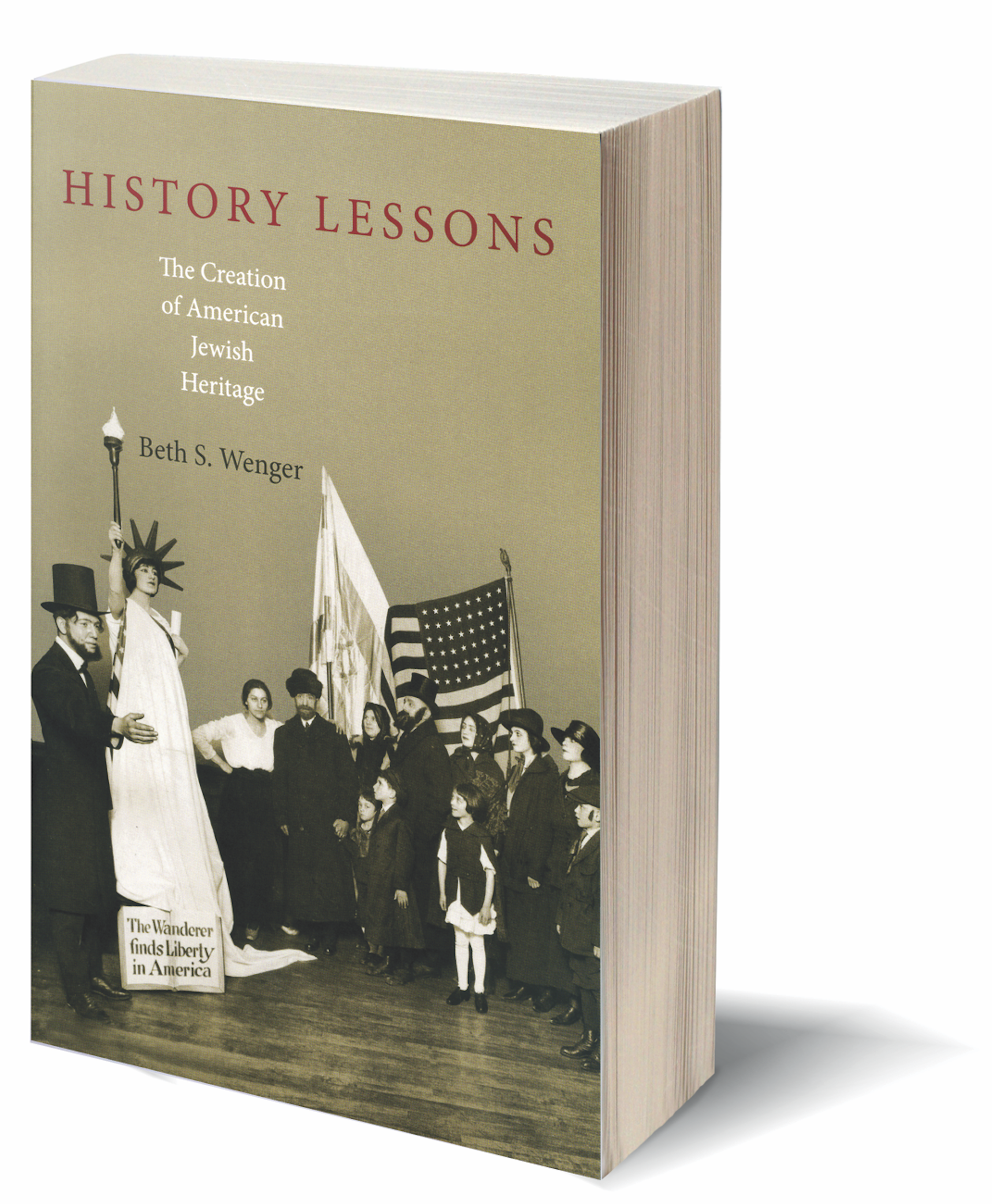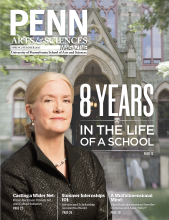“An American Story.”
It’s a colloquialism often used to describe success stories, lending a kind of communal identity to its protagonist. But in a country as culturally diverse as the United States, there are a variety of American stories, says Professor of History Beth Wenger. “Every minority group has created an account of its origins and belonging in America. These stories do not constitute history in the academic sense, but rather are a blend of fact and fiction, and are often embellished and self-serving. These popular accounts allowed immigrant groups to produce a collective past that both eased their adjustment to American life and created a distinct ethnic history compatible with American ideals.”
In her book History Lessons: The Creation of American Jewish Heritage, Wenger uses primary sources that are often overlooked to document the Jewish experience. Using popular accounts of American Jewish history offered in speeches, sermons, newspapers, children’s textbooks, and public celebrations, Wenger demonstrates how Jews fashioned a collective heritage by fusing their Jewish past with their American present and future. In one chapter, she explores the commemoration of Jewish war service in the United States.
“In European history, the willingness of Jews to serve in the military was a longstanding concern, especially in the debates over whether Jews should be emancipated. Consequently, American Jews marshaled the record of their military service not only to prove devotion to their adopted homeland but also to underscore how much they had overcome their European Jewish past.” She cites several popular accounts about Jewish service in the Spanish-American War in which Jews invoke the memory of the Spanish Expulsion and Inquisition. In these often self-congratulatory narratives, Wenger explains, “the reinvigorated Jews of America emerged to vanquish the memory of the European past and to exert a level of power that their ancestors could never have wielded.”
Wenger also explores Jewish celebrations of American national holidays, such as Thanksgiving and the Fourth of July. “Like other American ethnic groups,” she explains, “Jews used patriotic displays both to demonstrate loyalty to the nation and to articulate a sense of ethnic pride.” One popular legend connecting Jews both to Christopher Columbus and to Thanksgiving claims that a Jew who sailed with Columbus had been the first to name the turkey, the centerpiece of the Thanksgiving celebration, “calling it tukki, the Hebrew term for peacock.” Wenger also examined both Yiddish- and English-language textbooks, pageants, and plays written for children in the first half of the twentieth century. “I think in children’s literature you find the most crystallized accounts of what adults want Jewish children to know about Jewish history and about what it means to be a Jew in America.”
In addition to her role as a scholar, Wenger shoulders a number of administrative responsibilities. She is Director of the Jewish Studies Program, a position she’s held for seven years, and notes that, “Jewish Studies has seen enormous growth since I’ve been at Penn.” In addition, she serves as Chair of the History Department. “As a Jewish historian, and someone who thinks seriously about the past, it always strikes me that I teach students in my Modern Jewish History course about Jews in the 19th century who wanted so badly to teach and to see Jewish history recognized in universities but never could. Now, here I am as a Jewish historian, serving as Chair of a history department. It’s not something that I take for granted.”
Wenger is also one of four historians who helped to craft the core exhibition at the National Museum of American Jewish History in Philadelphia. She remains a consultant to the Museum, which also collaborates with the Jewish Studies program at Penn to host a panel discussion each semester. “Through a donation from the Arlene and Stanley Ginsburg Family Foundation, we’ve been able to create a series that creates connections between the story of American Jews that’s told at the Museum and broader themes in American history and culture. Right before the election, for example, we held a wonderful program on religion and politics.”
On top of her other duties, Wenger also serves as Chair of the American Jewish Historical Society’s Academic Council. Founded in 1892, it is the oldest national ethnic historical organization in the United States.




